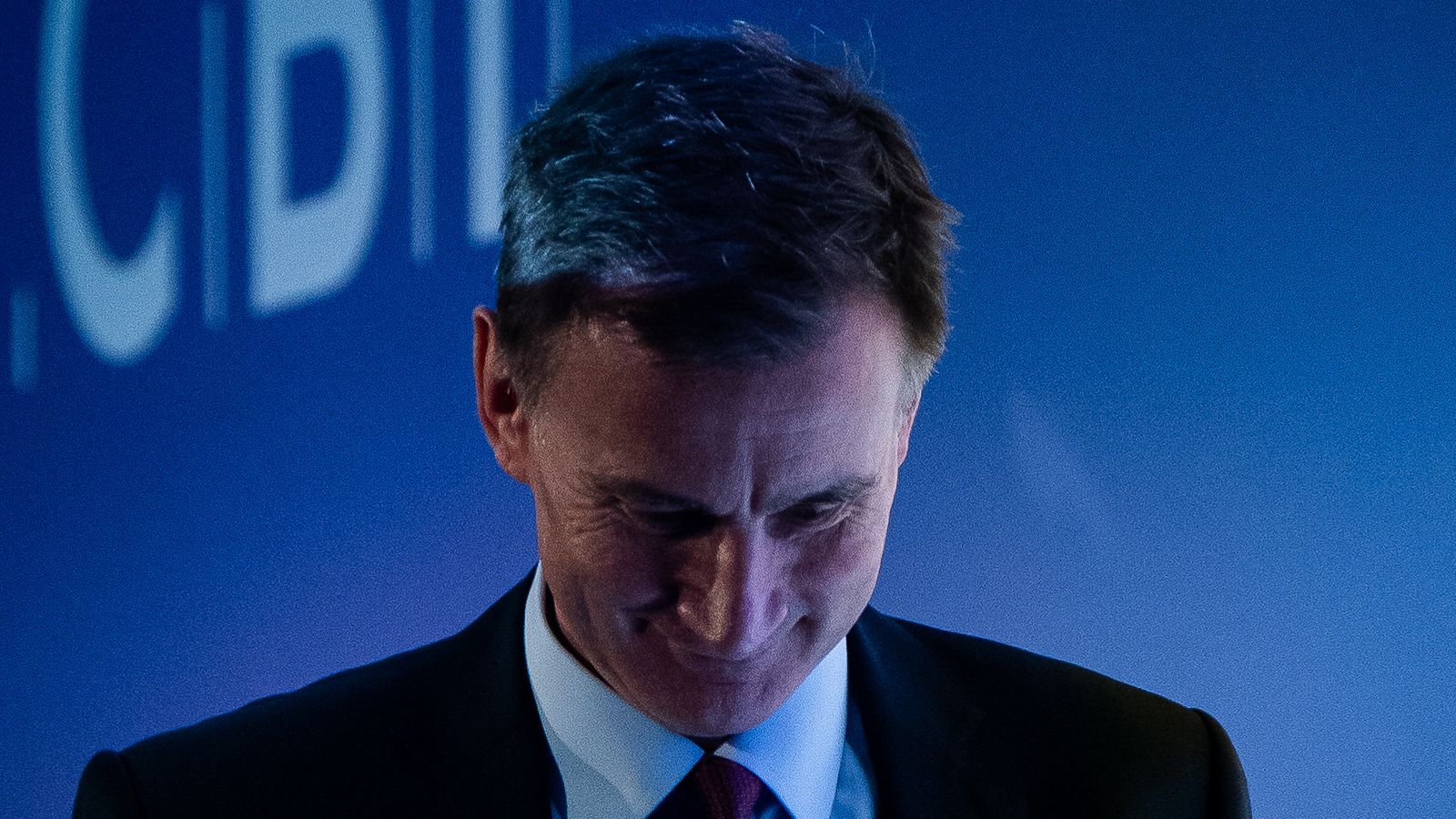Jeremy Hunt has cast doubts over introducing big tax cuts at the next budget, saying he is unlikely to have the fiscal “room” he had in the autumn.
Earlier this month, the chancellor hinted at further reductions come 6 March, saying the government’s plan of “prioritising tax cuts” was working, and that it would “stick to it”.
Politics live: Minister makes awkward admission about his brief
The comments followed his decision in the autumn statement to reduce national insurance by two percentage points, with the Office for Budget Responsibility (OBR) saying it would cost the Treasury £9.76bn in the 2028 tax year.
But speaking to ITV, he confirmed reports he had warned the cabinet he may not be able to go that far in what could be the last big fiscal moment before a general election.
“We go through a process ahead of every budget and autumn statement where you don’t actually know the final numbers until a couple of weeks before, and we’re still in the middle of that process,” he said.
Lord Cameron faces backlash after he hints at move to recognise Palestinian state
‘Of course it’s fair’: Minister defends controversial policy of prioritising social homes for those with ‘UK connection’
Victims bill has ‘no teeth’, claims government adviser
“As things stand at the moment – things can change – it doesn’t look like I’ll have the kind of room that I had for those very big tax cuts in the autumn.
“And I did mention that to the cabinet, yes.”
Please use Chrome browser for a more accessible video player
Be the first to get Breaking News
Install the Sky News app for free
Mr Hunt’s remarks come a day after the International Monetary Fund (IMF) advised the UK Treasury not to cut taxes, and expressed scepticism about the chancellor’s spending plans for the coming years – raising questions about his ability to meet his own fiscal rules.
The economic body said: “Preserving high-quality public services, and undertaking critical public investments to boost growth and achieve the net zero targets, will imply higher spending needs over the medium term than are currently reflected in the government’s budget plans.”
It added: “Accommodating these needs… will already require generating additional high-quality fiscal savings, including on the tax side.”






